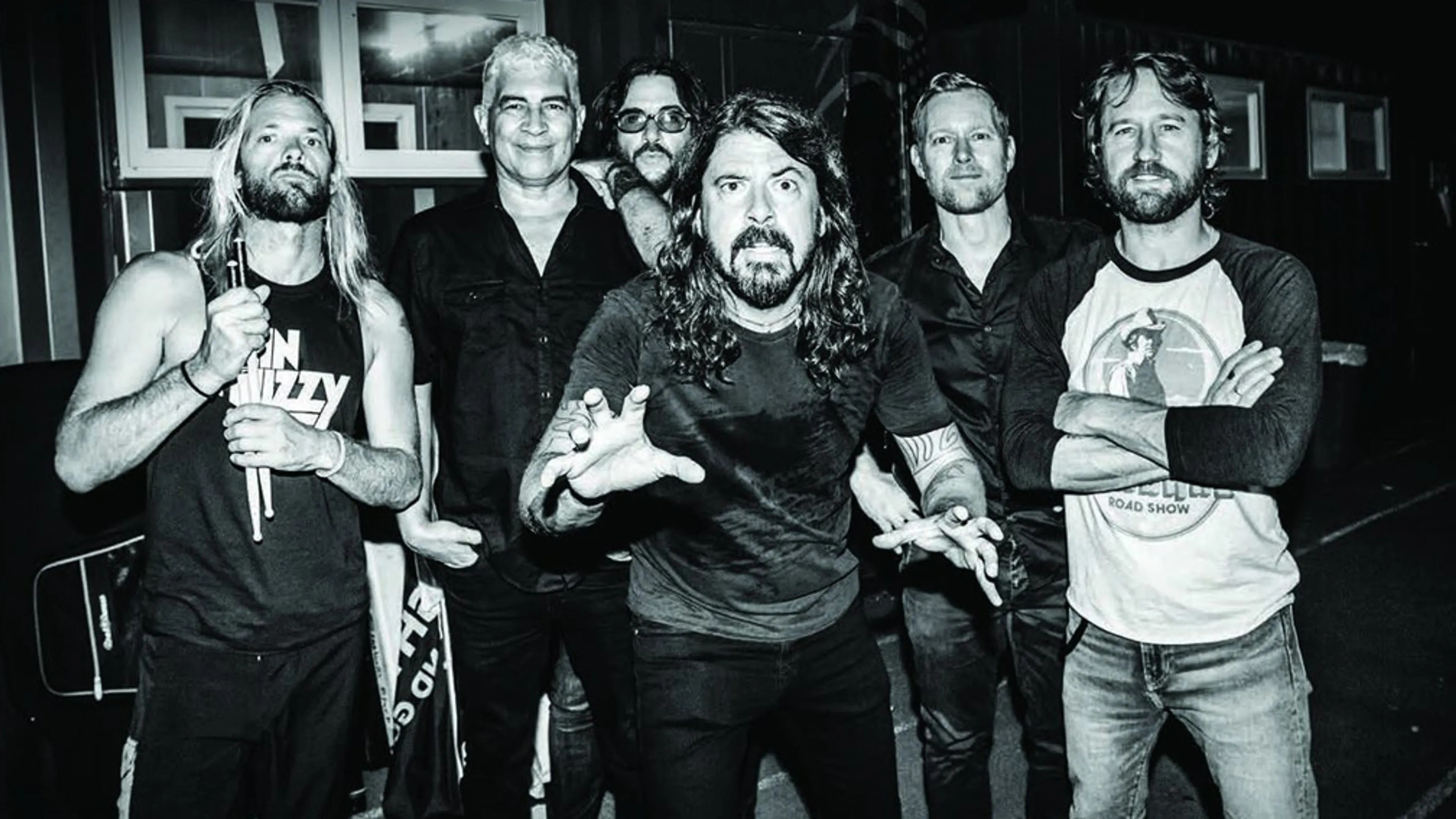A quarter century ago, when Dave Grohl went from being the ex-drummer in Nirvana to the frontman of his own fledgling band, even his most ardent believers would’ve struggled to conceive the success Foo Fighters have gone on to achieve. Embracing the lessons learned during that first behind-the-kit stint on top of the world, but replacing much of Kurt Cobain’s despondency with his own energy and optimism, failure was never really an option. Even still, the supernova spark of this new sound feels genuinely like that once-in-a-lifetime instance of lightning striking twice.
A large part of the Foos phenomenon has been Dave’s uncanny knack for having like-minds gravitate into his orbit, with sporadically-involved guitarist and Nirvana collaborator Pat Smear, and Nate Mendel having been involved since day one, while drummer Taylor Hawkins dared take on one of the most demanding roles in rock, Me First And The Gimme Gimmes guitarist Chris Shiflett came aboard in 1999 and Wallflowers keyboardist Rami Jaffee has played a part since 2005.
Of even more importance has been the desire to endure. Across nine albums and countless live performances – years of stress and self-doubt, disenchantment and injury – it has been the consistency and reliability of the Foos’ output (and a simple lack of pretentiousness) that has maintained connection with the average fan in the stands even as they have moved into stadia. So, which songs are most emblematic of rock’s greatest everymen? Let's find out…
